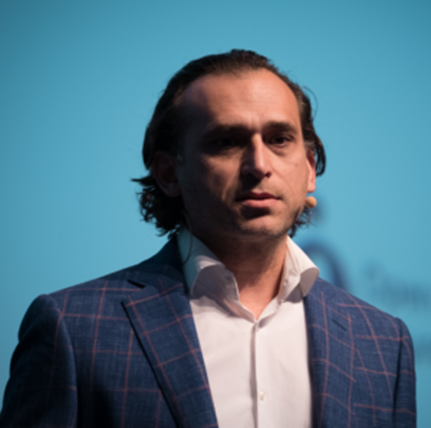
The Open Insurance Initiative (OPIN) intends to create standardised, open source APIs to enable InsurTechs to build innovative integrations with insurers. From this interview made by KAE with OPIN’s founder, Fouad Husseini, you will learn more about the initiative.
Tell us about your background in Insurance and InsurTech
F.H: Insurance has been my chosen career since graduation and my endless curiosity of how this business operates has meant stints to try out and understand many of the specialist fields of insurance from sales, underwriting, claims and reinsurance to operations.
My insurance digitization experience began around 2011 helping formulate ideas and plans for my employer at the time. However, I started to actively research the InsurTech sphere around the year 2015 as the movement was starting to get traction and attract mega investor dollars. I became involved with a handful of startups around the same year which led to providing them with advice around systems integration and application programming interfaces (APIs).
My involvement in the Open Insurance initiative is driving a lot of interaction for me on many fronts, and I specifically enjoy those with incumbents, startups and regulators. Most of my efforts these days go into thinking how to get the industry to work together, to have a common approach to be able to build scale.
What is the aim of the Open Insurance Initiative (OPIN) and how is it trying to achieve this?
F.H: The initiative describes an approach to business development that supports a new level of dialogue between customers, insurers, and third parties. It fosters InsurTech growth and enables developers to build awesome integrations with insurers APIs whose role is quickly evolving.
Through the development of standards, OPIN aims to achieve four main objectives for the benefit of consumers and industry.
The initiative will strive to:
- Empower consumers to share their data in a secure and safe manner
- Enable the rapid creation of applications (an Apple app store experience)
- Make it possible for insurance ecosystems to develop
- Help foster innovation across the value chain
The initiative will present the insurance world with a blueprint of open source API specification that will allow the exchange of personal data as well as open data. Insurance is a data intensive business, more so than banking or any other business and the range of data harvested is increasing with the adoption of new tech such as IoT and autonomous cars.
We aim to provide the InsurTech community, developers and a multitude of third parties the capacity to securely integrate their applications with insurers data through open APIs. Insurers will more readily be able to experiment, collaborate and leverage innovative solutions and business models.
In the future, no individual company could possess all of the resources, time or capabilities required for success in this new era of insurance. In ecosystems, incumbents will tap the most valuable new technologies, data sources, services, distribution channels and more without the multiplication of complex and costly individual relationships.
What experience(s) led you to see that the industry needs something like OPIN to move forward?
F.H: I have been involved in advising InsurTech startups here in the Middle East since for few years now, despite their limited numbers compared to other more entrepreneurial environments. Nonetheless, an issue that had caught my attention around 2015, was the difficulty that comparison sites had in integrating their platforms to the systems of insurers to allow automation, real time pricing and processing of insurance policies.
A pricing aggregator had to repeat the process of designing their integrations to fit the APIs of each of the insurers they wanted to integrate with which involved months of discussions and toing and froing between insurers and their system vendors. This was a costly and time-consuming exercise, and you could imagine how the costs accelerate with the entry of further comparison sites and the vicious cycles that these startups and their insurance partners had to endure.
Therefore, my initial idea revolved around the design of a common standard for APIs that all insurers would voluntarily adopt to speed up their integration with all manner of partners not just pricing aggregators. Unfortunately, the project had to wait as I was at the time consumed with writing my first book which was eventually published in December 2017.
Research started soon after, culminating in a whitepaper that was published in August 2018 providing an overview of the key elements involved in developing the concept of Open Insurance and its objectives which highlighted the significant importance of utilizing open APIs to allow data to flow securely between insurers, their customers and third parties.
As OPIN aims to provide standardised APIs for the Insurance sector, to what extent were you influenced by the shift towards open banking in Europe driven by the PSD2 regulation?
F.H: The initiative came about out of business necessity and is an industry initiative aiming to enable the development of ecosystems.
Open Banking and PSD2 on the other hand are the products of policy makers with the objective of opening up the banking sector to challenger banks and in effect forced banks to share their customer’s data with third parties.
But my perspective was different, I saw advantages in introducing common standards that enable a collaborative ecosystem-first approach that avoids the burden of additional regulation on top of what is already described as high entry barriers. The whitepaper clearly sets out example ecosystems involving motor and life insurance and potential use cases.
Sharing access to data is really an essential ingredient of the API economy as we move into an era that will witness the proliferation of connected devices that will generate huge and persistent data streams, which will require greater speeds of transfer enabling AI to respond to events instantuosly without human intervention. So, data will have to be shared by all ecosystem participants who will find that exchanging data is necessary to doing business.
How would you characterise InsurTech, and FinTech more generally, in the Middle East? Have you found it to be a region heavily disrupted by innovation, or one which continues with the legacy technologies of incumbents?
F.H: Digital disruption is gaining a greater footing in the Middle East but unfortunately, it is not a region that has been known for leading innovation. FinTechs’ are now starting to penetrate every segment in the region aided by growing e-commerce services and businesses and a population with an appetite for digital services.
Total investment in FinTech across the Middle East and North Africa has amounted to USD150m in the first half of 2018. Therefore, it is a region still bogged down by legacy and monolithic technologies that will probably set the region five years behind international markets.
There are however rich pickings for InsurTech startups aiming to tackle the estimated 86% of unbanked potential customers as well as a growing number of FinTech specific investment vehicles looking to exploit irresistible opportunities.
Incumbents are beginning to adapt to new realities and adopt ever more innovative technologies and services that their counterparts across the globe had begun to introduce. What the region has lacked thus far, are innovation hubs the likes of which that Allianz’s X and AXA’s Next Labs or Munich Re’s Digital Partners. These are major conduits for exploring opportunities with innovative startups.
What were some of the most significant developments discussed at the Global InsurTech Summit last month? Which of these do you think will cause the greatest disruption in the coming year, and why?
F.H: I am pleased to see that I am increasingly being invited to present the Open Insurance Initiative at InsurTech conferences, and on this occasion, I took part in the summit and also chaired a round table at the CXO Forum around the topic of Open Insurance.
I sense an increased appetite for experimentation to leverage opportunities resulting from continuous advancement in technology and changing customer behavior.
Two topics stood out for me the most. AI and more specifically machine learning which seem to command the attention of most company executives. The second, was the focus on adopting a collaborative approach with InsurTech startups to overcome disruption. This is coincidently an aspect of ecosystem building promoted by the open insurance concept.
Are there any common misconceptions held by peers, incumbent insurers and/or other industry stakeholders around InsurTech? Why do you think this is the case?
F.H :A mighty industry comfortably operating on centuries old processes and business models was probably, (without generalizing), a little doubtful of the InsurTech movement in its early formative years in 2014 and 2015, and many had labeled it as a fad, unfortunately some still do! “Insurance, is a business built on personal trust, relationship and chemistry” is a widely used phrase in the industry. It certainly holds some truth (for example some products are still difficult to sell online without human intervention), but it is one sided, and doesn’t take into consideration the evolving consumer expectation and enhanced customer journeys provided by mobile and digital platforms.
Perhaps on the InsurTech startups side, the greatest misconception usually was the expectation of a smooth partnership and integration relationships. Entrepreneurs are often surprised by the complexity of insurance and that it’s not all about tech, but in reality, it’s more about cultural and management resistance to change that are often the hurdles for adopting innovative ideas.
Finally, what is the one pearl of wisdom you would share with InsurTech start-ups beginning their journey?
F.H: Innovation is necessary and it’s an aspect that startups could leverage to form partnerships with incumbents, but a deep understanding of the business, its culture and regulatory framework will go a long way to shorten the learning curve and will also save their investors a lot of money.
Technological innovation is essential, but in and of itself is not sufficient. Just because its available doesn’t mean an insurance business can be built around it. Conversely speaking, it’s becoming plainly clearer that digital ecosystems are a developing force to be reckoned with in the coming few years and is an opportunity for InsurTech startups to position themselves in this new era.
Article originally published by KAE.


